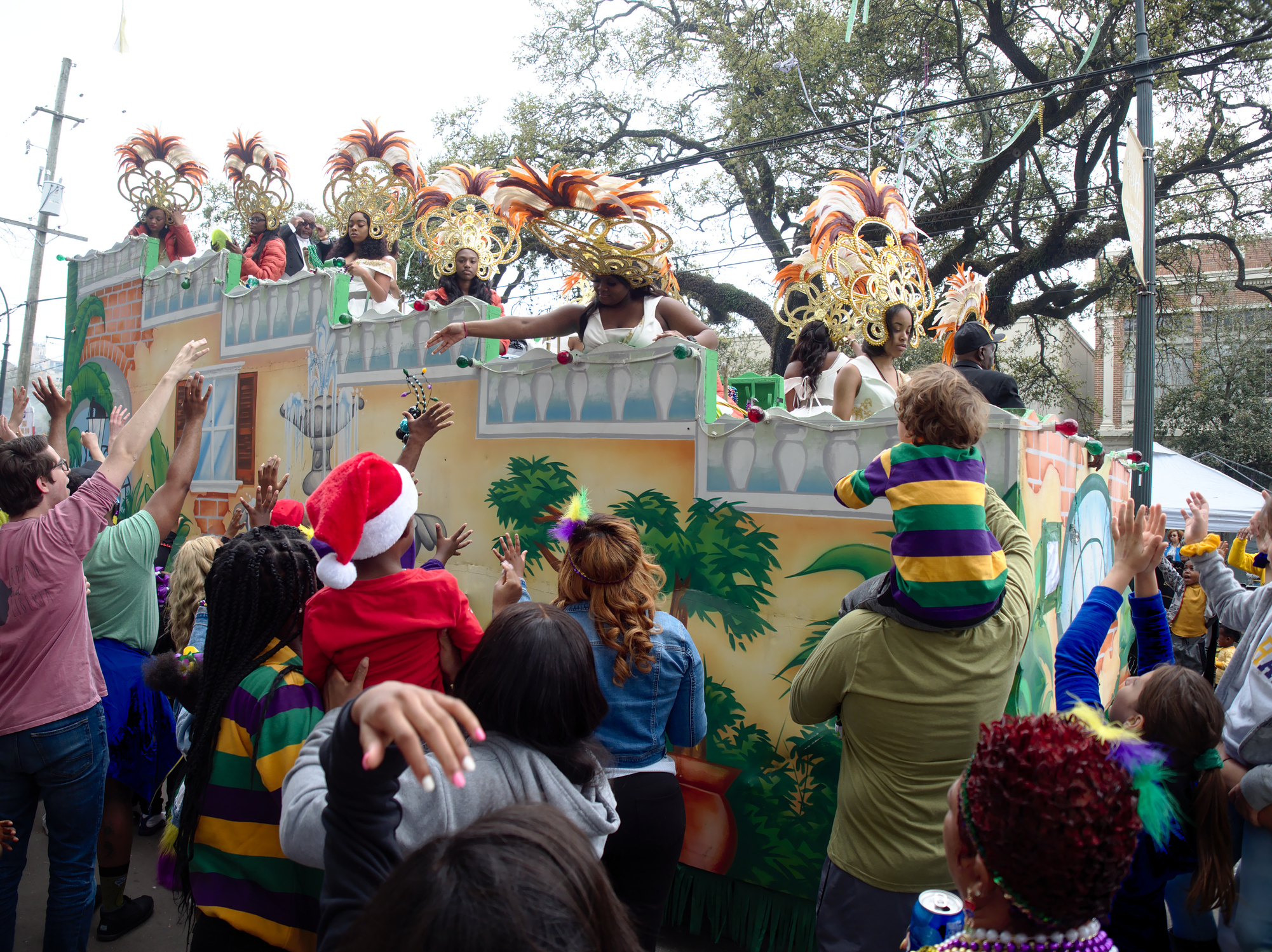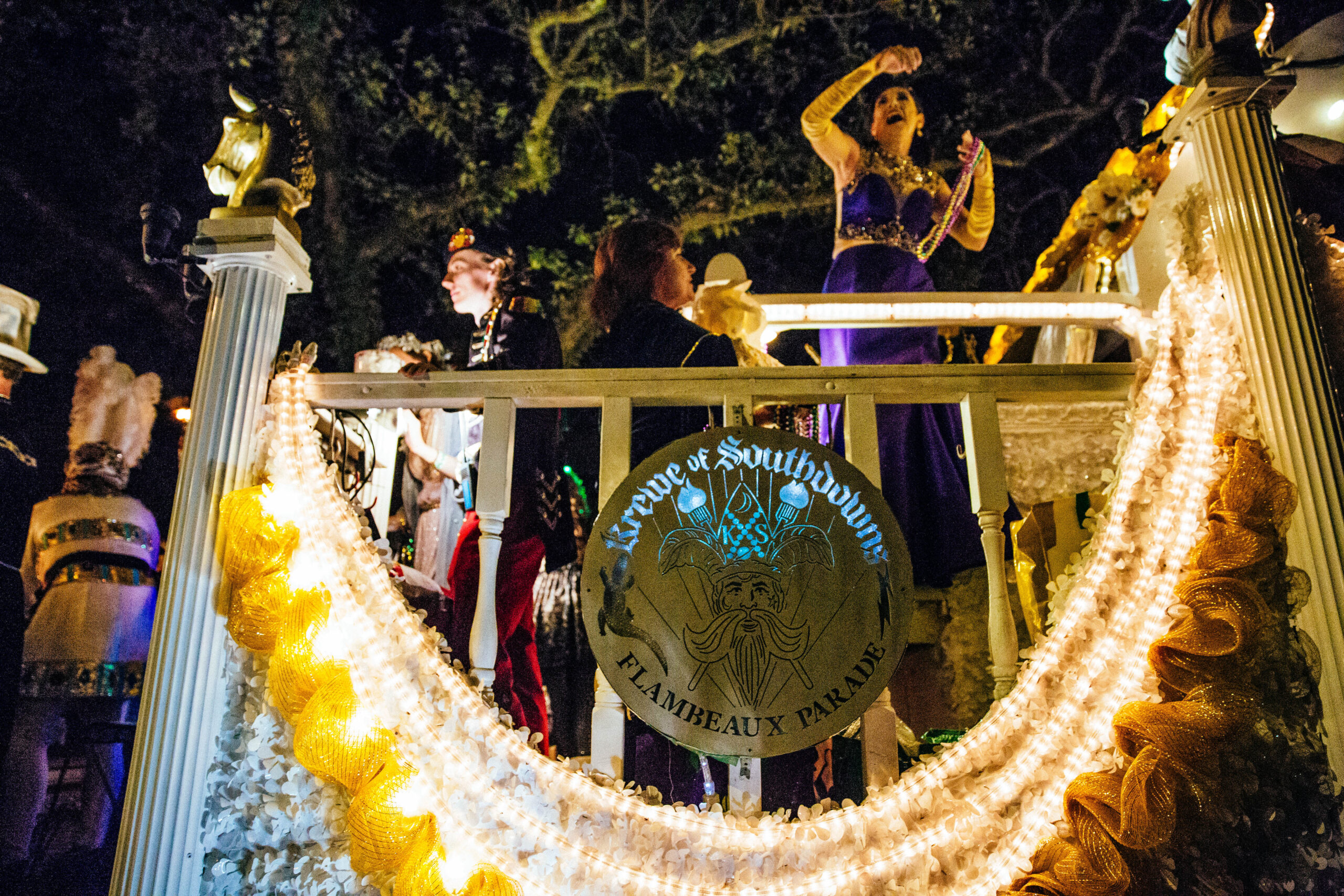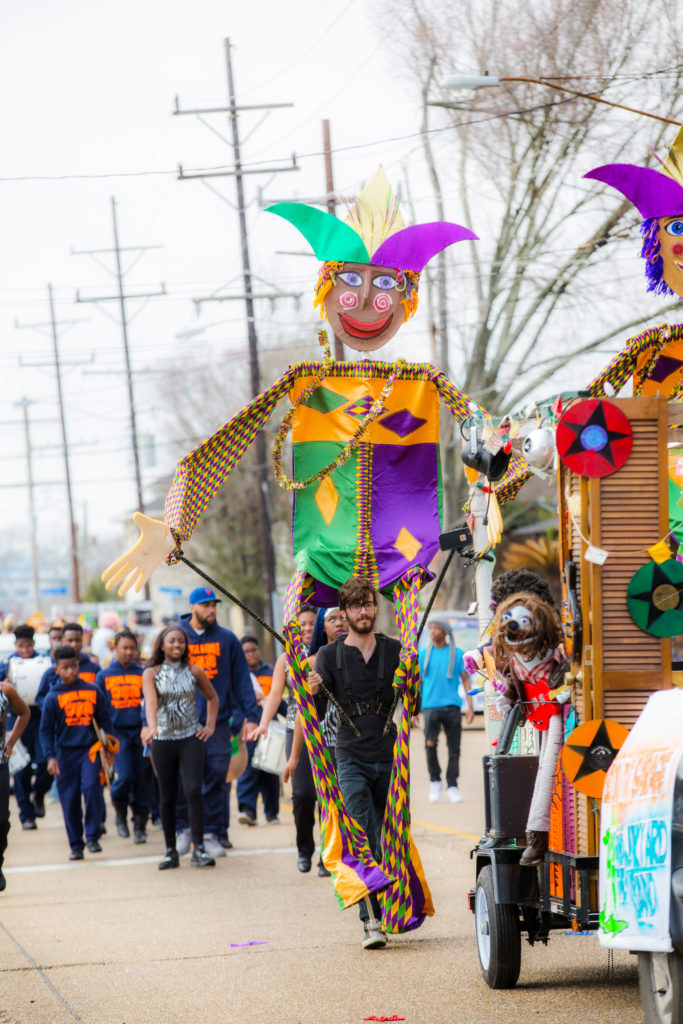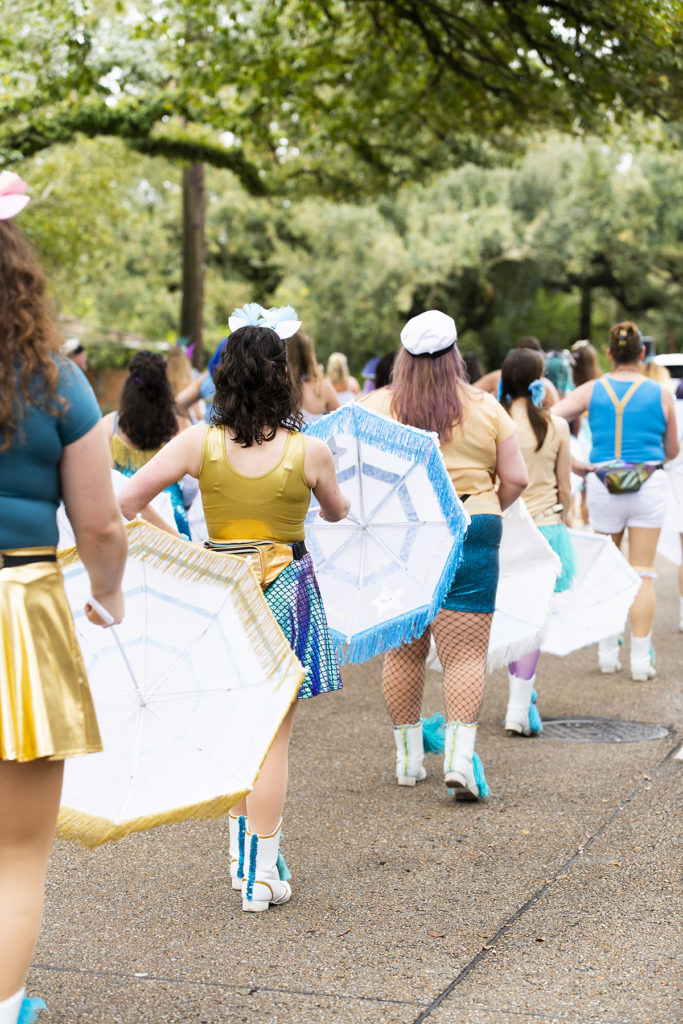
Why doesn’t Baton Rouge have a Fat Tuesday parade?
Mardi Gras’ roots date back to Rome and Medieval Europe, eventually leading to a U.S. celebration in in 1703 in what would become Mobile, Alabama. But almost anyone will tell you that Mardi Gras is a genuine Louisiana celebration.
Despite New Orleans and Acadiana’s unique traditions on Fat Tuesday every year, Baton Rouge’s Carnival holiday is over by Mardi Gras Day. Why is that?
The closest the city got to a celebration on Mardi Gras this year was a Lundi Gras event. A second line parade ran the Monday night before Fat Tuesday from 14th Street to Red Stick Social in Government Street’s Electric Depot. But the Red Stick’s Carnival festivities typically end the weekend before Mardi Gras, after the Krewe of Southdowns Flambeaux Parade and the Spanish Town Mardi Gras Parade roll on Friday night and Saturday afternoon, respectively.

Paul Arrigo, president of Visit Baton Rouge, has found that a big part of what keeps big celebrations like parades and balls out of Baton Rouge on Fat Tuesday is just how much of a travel occasion Mardi Gras has come. For some 225 residents, no local celebration could be as appealing as New Orleans’ “Greatest Free Show on Earth.“ For others, the five-day weekend is a chance to jet off on vacation. Walt Disney World, Florida and Colorado are common travel destinations for Baton Rouge residents to spend their five-day weekend, Arrigo says.
But some families do end up staying in town for Fat Tuesday even if there isn’t as much to do as in neighboring towns. “Lots of people really keep it as a family event with barbecues, hunting and fishing,” Arrigo says.
The out-of-town traveling on Mardi Gras may change if there is ever a parade on Fat Tuesday, Arrigo says. And as Baton Rouge’s Mardi Gras parades have increasingly become visitor events in recent years, the trajectory of the Capital City’s Carnival season could be trending toward an eventual celebration on Fat Tuesday.
“I’m confident that in the near future there will be enough demand to either move the dates of parades to Mardi Gras Day or we’ll see a new parade forming to run on Mardi Gras proper,” he says. After all, the city has seen new parades launch in recent years, with Mid City Gras forming in 2018 and Krewe of Oshun launching in 2020.
Visit Baton Rouge and the city itself do not plan the parades; they simply promote the events around town during the weeks leading up to Mardi Gras Day. A few industrious locals, however, create the Mardi Gras scene from the ground up.
Born in Baton Rouge and raised in the neighborhood of Southdowns, Dr. William Gladney started the Krewe of Southdowns Flambeaux Parade in 1988 after returning from his medical residency in New Orleans. His goal: Bring a little taste of New Orleans’ Carnival to Baton Rouge, even if it wasn’t on Fat Tuesday.
“The spirit of New Orleans really touched me, and I knew what I was going to do: Bring that right into Southdowns and make it happen,” Gladney says, as he thinks back to his krewe’s first parade. Today, Southdowns brings elements of Crescent City parades, like the flickering torches known as flambeaux.
Despite Gladney’s roots being in Baton Rouge and how much work he has put into Southdowns, he says the parade is held on the Friday before Fat Tuesday for a reason. “I don’t even known what Baton Rouge looks like on Tuesday,” he says. “All I know is that I would be crushed if I was stuck here on Fat Tuesday knowing Carnival was going on somewhere else. I’d want to be there instead!”

Gladney has his own thoughts on why Mardi Gras Day isn’t as big in Baton Rouge. He feels the city doesn’t really have as strong an identity when it comes to Carnival as places like New Orleans and Lafayette.
“That tradition has just never been there. But still, the schools let out for whatever reason, and it’s not for Mardi Gras,” he says. “But if you’ve lived in New Orleans or like those features of New Orleans, you’re going to go down there. You’re just not going to be kept away from it.”
There is a distinct cultural divide between the two cities, he says. He also attributes New Orleans’ deep Catholic roots to Mardi Gras’ foothold on the city, as Mardi Gras remains deeply tied to the Catholic calendar.
Regardless of whether a New Orleans-style parade ever makes its way here on Fat Tuesday, the soul of Mardi Gras will continue its journey up the river for the rest of the season.
“Carnival is a cultural holiday and at the roots of what Louisiana is,” Gladney says. “It pulls people together. If you’re big, you’re tall, you’re rich, you’re poor, you’re Black or you’re white—once you put people out there and let them have fun and meet each other to joke around, it unifies people.”



